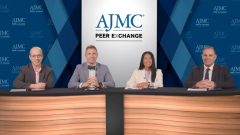
The Window of Opportunity: Why Early Biologic Use Matters for Patients With Hidradenitis Suppurativa
Panelists discuss the critical importance of early biologic therapy initiation in hidradenitis suppurativa to prevent irreversible tissue damage, reduce disease burden, and overcome socioeconomic and systemic barriers that delay timely treatment and worsen patient outcomes.
Episodes in this series

Early initiation of biologic therapy in conditions like hidradenitis suppurativa (HS) is critical primarily to prevent permanent tissue damage. Chronic inflammation from untreated or inadequately treated disease leads to painful boils and scarring that significantly impact patients’ quality of life. Early biologic treatment helps reduce inflammation, lowers the need for invasive surgeries, and decreases the frequency of disease flares. This not only alleviates physical pain but also lessens the mental and emotional strain patients experience, enabling them to live more comfortably and productively.
Missing the window for timely biologic therapy has serious consequences. Patients who experience delayed treatment often develop more severe, refractory disease requiring surgeries and more intensive medical interventions, which burden both the health care system and the patient. Many barriers contribute to this delay, including socioeconomic challenges like transportation difficulties, distance from specialists, high out-of-pocket costs despite insurance coverage, and insurance denials. Additionally, stigma, mistrust of the health care system, or normalization of symptoms within families can prevent patients from seeking or receiving early care. Providers often address these challenges by leveraging co-pay assistance programs, patient foundations, and building trusting relationships that encourage timely treatment.
Even when biologic therapies are started, managing expectations is important as some patients experience residual disease requiring close monitoring and treatment adjustments. The consequences of missing early intervention can be devastating, with cases showing severe scarring, resistant infections, and complications that lead to emergency visits and spread of antibiotic-resistant bacteria. These outcomes highlight the urgent need for coordinated efforts to ensure all patients receive appropriate and timely biologic therapy to improve long-term disease control and prevent irreversible damage.
Newsletter
Stay ahead of policy, cost, and value—subscribe to AJMC for expert insights at the intersection of clinical care and health economics.








